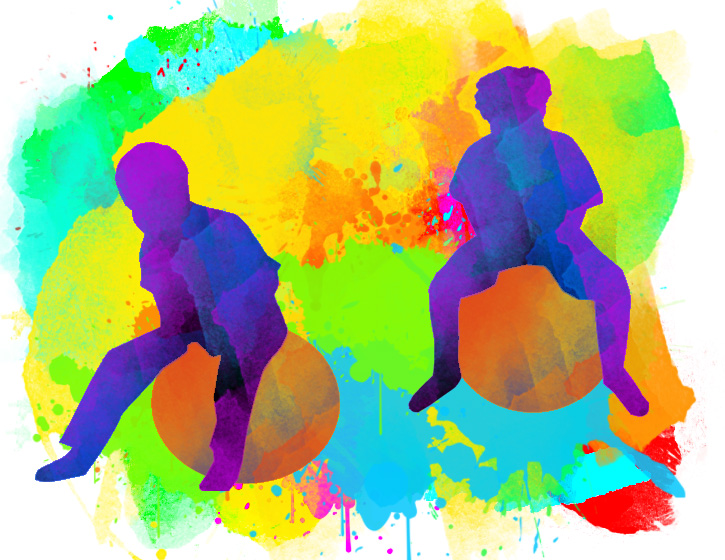
February 23, 2026
Access expert support services designed to nurture your emotional wellbeing.


Our therapeutic approach is grounded in evidence-based methods, using techniques that are shown to be effective through research and results.
We aim to deliver a clear, compassionate service tailored to each person we work with. From the moment of referral through to the end of your therapy journey, we provide comprehensive, person-centred support designed to suit your individual needs.
Our impact data highlights the trust, care, and transformative difference we have made in improving mental health for individuals and organisations.

Couples counselling is a form of therapy that supports partners in navigating relationship challenges and improving communication and emotional connection. It offers a safe, supportive environment where both individuals can express their thoughts and feelings openly, guided by a qualified therapist. Rather than focusing on blame, the aim is to build mutual understanding, resolve conflicts, and strengthen the relationship in a meaningful, lasting way.

Dance Movement Psychotherapy (DMP) is a therapeutic approach that uses movement and body awareness to help you explore emotions, express yourself, and deepen your connection with your body. For many people, moving can offer a powerful and healing way to process feelings and experiences.
You don’t need any dance background to take part. DMP isn’t about performance or how you look, it’s about moving in a way that feels right for you. A qualified therapist will support you in using movement as a tool for emotional expression, stress release, and self-discovery, all within a safe, non-judgmental space.

Dramatherapy is a unique form of psychotherapy. The Drama Therapist uses story-making, drama, movement, art and more to explore emotions, process experiences, and support personal change.
You do not need to be a performer or have any drama experience. This is not about putting on a show, it is about using creativity to safely access, express, and work through parts of ourselves that can sometimes be hard to explore with words alone.
Dramatherapy integrates psychological understanding with artistic expression, making it a powerful and accessible option for people of all ages and backgrounds.

Eye Movement Desensitisation and Reprocessing (EMDR) is a specialised therapy that helps people recover from trauma and distressing life experiences. When something deeply upsetting happens, the memory can sometimes get “stuck,” leading to ongoing emotional pain, intrusive thoughts, or strong reactions. EMDR supports your brain in reprocessing these memories so they no longer feel as overwhelming or disruptive.
During EMDR sessions, a trained therapist guides you to focus on specific memories or emotions while using gentle, rhythmic movements—often following the therapist’s hand with your eyes. These movements help activate your brain’s natural healing process.

IFS is based on the idea that we have a core self, a ‘self-energy’ and our parts develop through painful experiences from birth. Some parts carry these wounds. These parts protect us from pain, managing how we show up in the world and respond to externally experienced or internally felt situations. Parts have their own feelings, beliefs, and roles. They interact and can conflict with each other and our core self.
Through IFS, we learn to get to know these parts with curiosity and compassion so that we can understand them and relieve them of their burdens. This creates balance between them and our core self, which is calm, wise, and capable of healing.

Music Therapy is a creative form of psychotherapy that uses music to help people explore and express feelings that may be difficult to put into words. Through singing, playing instruments, rhythm, and listening, music therapy creates a safe and supportive space where children, young people, and adults can connect with themselves and others in new ways.
It isn’t about being “good at music” — it’s about using sound, rhythm, and creativity to support emotional growth, healing, and connection.

Play therapy is a child-centred therapy. Working at the child’s pace, it enables them to explore and process experiences that unconsciously or consciously impact their everyday lives. Unlike traditional talking therapy, play therapy helps children communicate their thoughts and feelings in a natural, comfortable way. Therapy may include puppets; dolls houses; games; sensory play; and creative activities, such as art. Often what is communicated through play is unconscious and therefore provides the therapist with a deeper understanding of the child’s internal world. For this reason, experiences that a child cannot verbalise can be conveyed and processed safely at their own pace. Therefore, it can be particularly beneficial for children who have experienced trauma, and for those who generally struggle to put their emotions into words.

NeuroAffective Touch is a body-centred therapy that combines gentle touch or self-touch with talking therapy to support emotional healing, particularly from early life experiences such as trauma, emotional neglect, or attachment difficulties. This approach is especially helpful for people who may struggle to express emotions through words alone.
By including safe, mindful touch, the therapy helps release held emotional tension, increase body awareness, and support better emotional regulation. Guided by a trained therapist in a safe and supportive space, each session is tailored to your individual needs offering a holistic path to healing that bridges body and mind.

NMT™ was developed by Dr Bruce D. Perry, M.D, Ph.D., who founded the Neurosequential Network and Child Trauma Academy.
It is not a therapy or a specific intervention. It is a comprehensive, developmentally sensitive, neurobiology-informed clinical assessment process that identifies the strengths and vulnerabilities of children with adverse experiences.
Integrating the core principles of neurodevelopment and trauma, it informs the implementation of appropriate support for children, their families and their wider communities to promote healing and recovery.

Psychodynamic counselling is a form of talking therapy that helps you gain deeper insight into yourself by exploring how past experiences, especially those from childhood, may be influencing your thoughts, feelings, and behaviours today. It works on the idea that some of what shapes us lies just outside our conscious awareness.
In a supportive and confidential setting, you’ll work with a trained therapist to explore emotions, memories, and recurring patterns in your life. By bringing unconscious influences to light, this approach can help you understand yourself more fully, break unhelpful cycles, and create space for lasting personal change.

Somatic Experiencing (SE) is a body-oriented therapy designed to help you recover from trauma and chronic stress by reconnecting with your body’s natural ability to heal. Traumatic experiences can leave lasting imprints in the body, making you feel stuck, anxious, or overwhelmed even long after the event has passed. SE works to gently release that stored tension and restore a sense of calm and balance.
Rather than focusing on retelling the traumatic story, SE invites you to notice what’s happening in your body in the present moment. With the support of a trained therapist, you’ll learn to track physical sensations and responses, helping your nervous system gradually move out of survival mode.

February 23, 2026

February 3, 2026
January 16, 2026
Get in contact with a member of our team for the right support